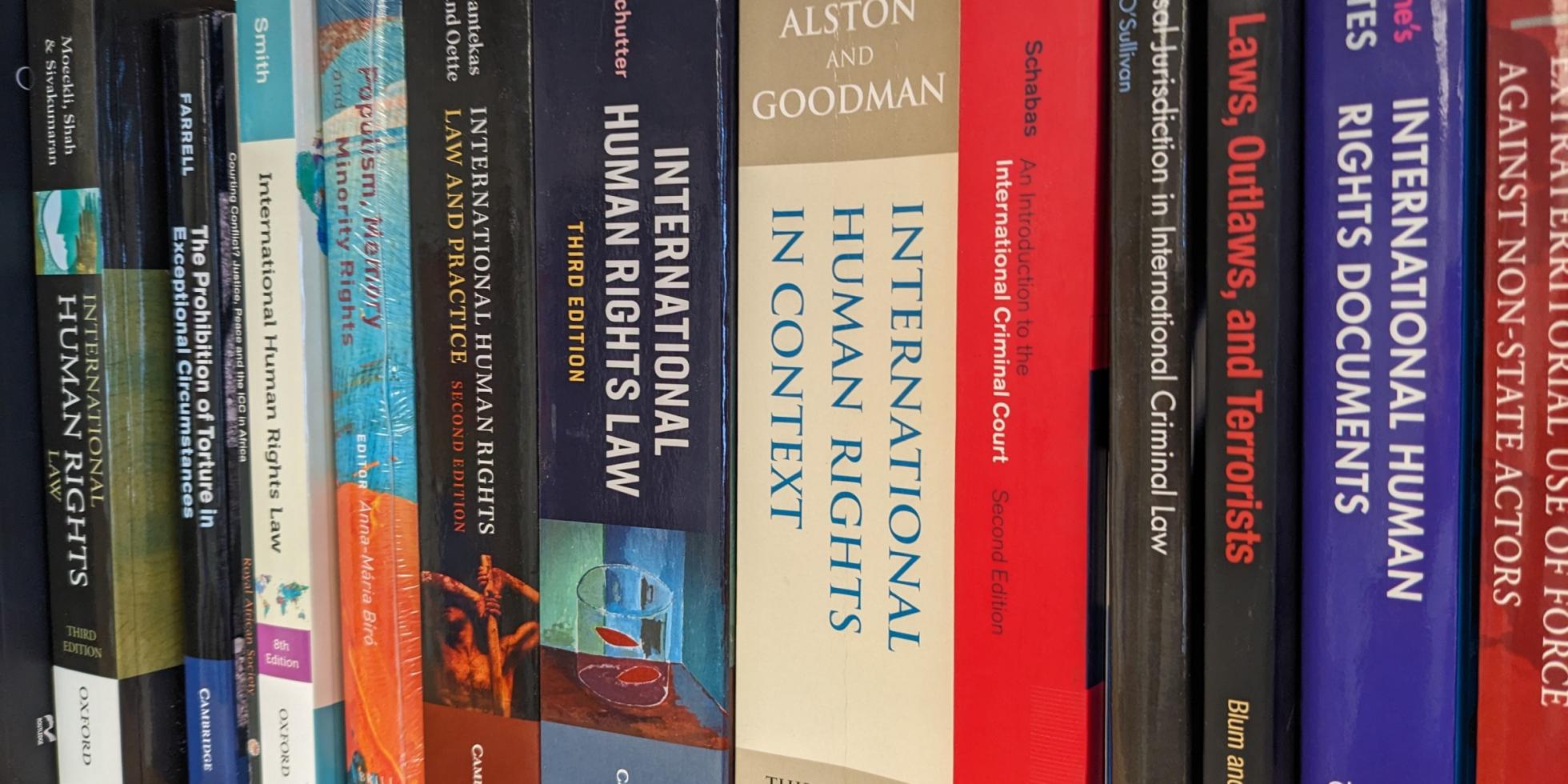The virtual human rights library brings together resources from multiple libraries and information services, both internal and external, to create an online hub dedicated to the study of human rights. This curation is unique in its interdisciplinary concerns and focuses on writings and research from social sciences, humanities, and law.
The virtual library is continually updated with the latest academic research in issue areas, as well as with relevant films, recorded conversations, and other forms of media.
Please Note:
The Virtual Library is usable by all visitors, but the hyperlinks to materials listed are for UChicago community members with a CNet ID and password.
Please direct feedback and suggestions to Kathleen Cavanaugh.
For technical assistance, email pozenhumanrights @ uchicago.edu.
Searchable Database
Click into the dropdowns to select the disciplines, keywords, and media type for your search, and then hit "Apply."
"A world without innocence"
What exactly is innocence—why are we morally compelled by it? Classic figures of innocence—the child, the refugee, the trafficked victim, and the animal—have come to occupy our political imagination, often aided by the important role of humanitarianism in political life...
"Abortion liberalization in world society, 1960–2009."
Controversy sets abortion apart from other issues studied by world society theorists, who consider the tendency for policies institutionalized at the global level to diffuse across very different countries. The authors conduct an event history analysis of the spread (however...
"Abortion, Race, and Gender in Nineteenth-Century America."
Many sociologists have considered the intersection of race and gender in the production of social life, but while works on “intersectionality” have offered a useful paradigm for analyzing the experience of individual persons, a model for understanding how structures interact...
"Agency of internal transnationalism in social memory."
The article examines the limitations of methodological nationalism in the studies of social memory through a case study of memory of Stalinist repression in Belarus. It analyses how various social agencies – national and local activists, religious organisations, and international...
"Altared states: Legal structuring and relationship recognition in the United States, Canada, and Australia."
In this article, we use comparative historical analysis to explain agenda-setting and the timing of policy outcomes on same-sex marriage in the United States, Canada, and Australia. Unlike the United States and Canada, Australia does not have a bill of...
"An emergent cosmopolitan paradigm? Asylum, welfare and human rights "
This paper addresses the recognition in cosmopolitan debate of a possible disjuncture between the normative ideal of cosmopolitanism and its realization in practice. Taking as its focus the potential conflict between human rights commitments and national concern about immigration control...
"Ancient Disease, Modern Epidemiology: A Century of Progress in Understanding and Fighting Tuberculosis"
A century's worth of efforts to better understand the epidemiology of tuberculosis (TB) and to develop new vaccines, drugs, preventive interventions, and case-finding approaches have provided important insights and helped to advance the field of epidemiology as a whole. Wade...
"Anthropology and Human Rights"
This essay reviews what anthropologists have contributed to the human rights framework and how they have used it for research and advocacy.
"Anthropology and Human Rights: Between Silence and Voice"
This text deals with ethnographic research carried out for two years at Fraternidade Assistencial Lucas Evangelista (FALE), an institution that provides residence to 200 people diagnosed with HIV. At this institution, located on the outskirts of Brasilia, Brazil, ex-convicts, ex-prostitutes...
"Anthropology, Human Rights, and Legal Knowledge: Culture in the Iron Cage,"
In this article, Riles draws on ethnography in the particular zone of engagement between anthropologists, on the one hand, and human rights lawyers who are skeptical of the human rights regime, on the other hand. She argues that many of the problems...

